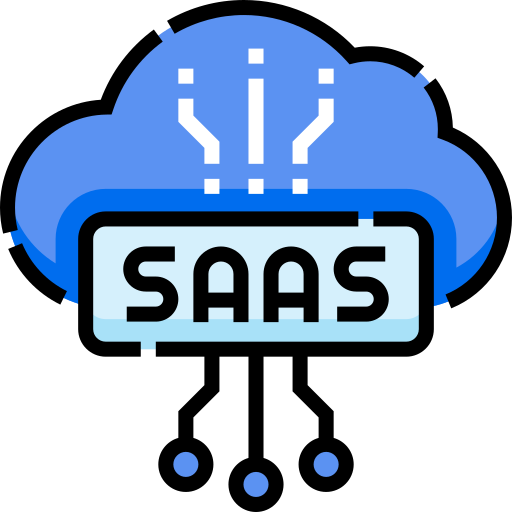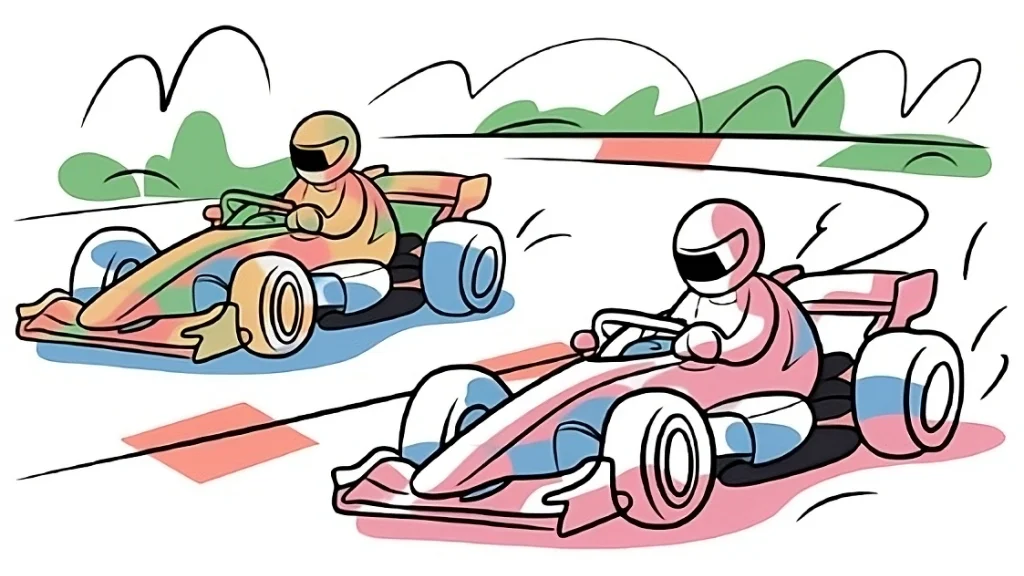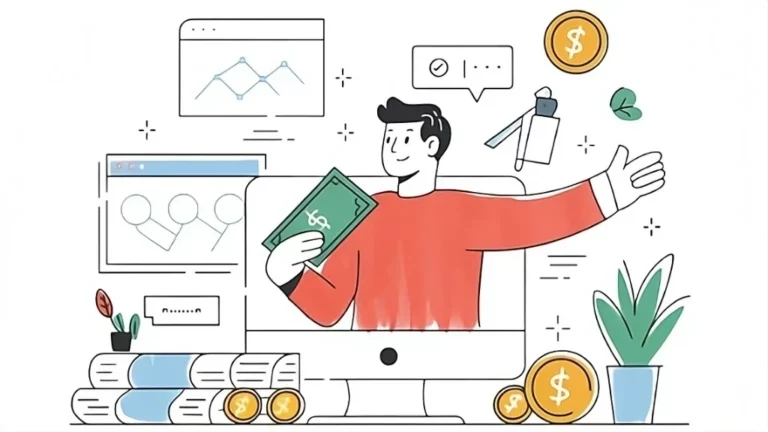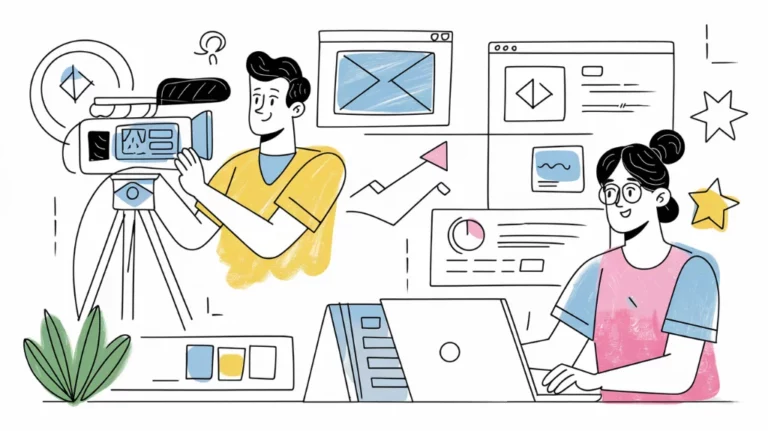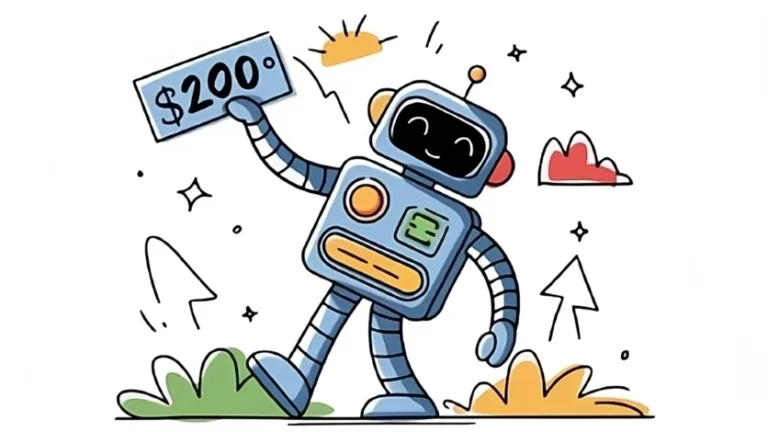Have you ever heard of the "Expert's Curse"? It sounds ominous, like something from an old myth, doesn't it? In reality, it's a well-documented cognitive bias that can seriously trip up seasoned professionals. The "Expert's Curse" essentially describes how deep knowledge in a particular field can, ironically, blind experts to fresh perspectives and innovative solutions. Imagine being so familiar with a map that you can no longer see a shortcut staring you in the face! Industry veterans, steeped in years of experience, can sometimes get stuck "solving yesterday's problems," as they say, focusing on outdated issues while the market has already moved on.
This can be a real problem for big, established companies, making them slow to adapt and innovate. But here’s the interesting twist: for you, the solo SaaS entrepreneur, this so-called curse can actually become a hidden superpower. Yes, you heard that right! By understanding and leveraging the very things that hinder large corporations, you can carve out a unique and successful path in the competitive SaaS landscape. So, let's get to know this fascinating concept better, and see how you can turn this "curse" to your distinct advantage.

How Exactly Does the Expert's Curse Stifle Real Innovation?
Think about it. Experts build their careers on frameworks and methodologies that have worked in the past. Years of experience forge strong mental pathways, making it efficient to solve problems using familiar approaches. While this efficiency is valuable in many contexts, it can become a significant roadblock when it comes to genuine innovation. As a compelling study from the Harvard Business Review highlighted:
Experts tend to "anchor" their thinking to established models, making it harder for them to explore truly novel ideas. They’re less likely to consider disruptive approaches because their expertise reinforces existing paradigms.
It’s like trying to teach an old dog new tricks, but in this case, the old dog is a brilliant expert, and the tricks are game-changing innovations!
Now, consider the solo entrepreneur. You, most likely, are not burdened by decades of industry dogma. You haven’t spent years reinforcing specific problem-solving frameworks. This "lack" of deep-seated expertise is precisely your strength! You are naturally more open to experimentation, more agile in pivoting, and more likely to innovate without the heavy baggage of "knowing too much." This freedom allows you to spot niche opportunities that experts, trapped in their established viewpoints, completely miss. It's almost like having a superpower of naiveté – in the best possible way, of course!
Is a Fresh Pair of Eyes Really More Valuable Than Years of Deep Industry Knowledge?
It might sound counterintuitive, but yes, often, a fresh perspective is incredibly valuable, especially when it comes to disruptive innovation. A fascinating study from MIT’s Sloan School of Management revealed that a staggering:
60% of successful startups were founded by individuals with little to no direct experience in their target industry
Let that sink in for a moment. This isn't just a fluke; it's a pattern. It powerfully demonstrates that approaching problems with a fresh, unburdened perspective can be a massive advantage.
As a solo entrepreneur, you naturally bring this fresh perspective to the table. You are uniquely positioned to:
- Uncover Hidden Market Gaps: You can see opportunities that industry veterans, blinded by their ingrained assumptions, dismiss as insignificant or irrelevant. It's like finding a hidden gem in plain sight because you weren't looking for it in the "usual" places.
- Craft Truly User-Centric Solutions: You approach problems from the user's standpoint, often as a layperson yourself initially. This allows you to build solutions that are genuinely intuitive and address real user pain points, without being constrained by what "industry best practices" dictate.
- Escape the Trap of Outdated "Best Practices": Industry experts often cling to established "best practices," even when those practices have become ineffective or outdated in a rapidly evolving market. You, on the other hand, are free to question everything and forge new, more effective paths. Think of it as being able to ignore the well-worn path and discover a faster, more scenic route instead!
How Can You, a Solo SaaS Founder, Outsmart the Industry Giants Who Are Supposedly "Experts"?
So, you're armed with this "beginner's mind" advantage. How do you translate that into tangible success and outmaneuver those big industry players weighed down by their own expertise? Here are some concrete strategies:
- Cultivate a Beginner’s Mindset – Intentionally: Don't just rely on your natural outsider perspective; actively nurture it. Instead of obsessing over becoming an "industry master" before you launch, prioritize deeply understanding your potential users' real pain points. Forget what you think you know and go straight to the source. Tools like Typeform for surveys and Hotjar for website behavior analysis are your best friends here. Gather insights directly from potential customers – listen to their frustrations, their needs, their desires. It's like becoming a detective, uncovering clues about what your users truly need.
- Focus on Emerging Problems, Not Yesterday's News: Industry experts are often preoccupied with the problems that were critical five years ago – legacy issues that are no longer top-of-mind for today's market. You can leapfrog them by focusing on the new challenges, the emerging needs. Think about Notion. Traditional project management software was often clunky and rigid. Notion, created by people who weren't necessarily enterprise software experts, captured a massive audience by addressing the growing need for flexible, all-in-one workspace tools in a more dynamic, user-friendly way. They solved a problem that was becoming increasingly important, while many experts were still focused on older, less relevant issues.
- Embrace Rapid Iteration as Your Superpower: Large companies, often bogged down by bureaucracy and a "we know best" mentality, tend to resist frequent changes and iterations. You, as a solo entrepreneur, can be incredibly agile. Adopt Agile methodologies and build, test, and deploy changes at lightning speed. This rapid iteration is crucial. According to CB Insights, "42% of startups fail due to a lack of market fit." Rapid iteration allows you to test your assumptions quickly, pivot when needed, and ensure you are building something that the market actually wants, before it's too late. It's like being able to adjust your sails quickly as the wind changes, while the big ships are slow to turn.
Can You Show Me Some Real-World Examples of "Non-Experts" Who Disrupted Entire Industries?
Absolutely! History is full of examples of outsiders who, unburdened by expert biases, revolutionized industries. Let's look at a few prominent ones:
- Stripe: Patrick and John Collison, the founders of Stripe, didn't come from the traditional world of payment processing. They weren't banking veterans. Their background was in software development. This "outsider" perspective allowed them to see the payment process through the eyes of developers. Traditional payment gateways were complex and developer-unfriendly. Stripe focused on simplifying the integration process for developers – something the established payment giants had completely overlooked. This developer-centric approach propelled them to build a multi-billion-dollar SaaS empire. They solved a developer problem that the "experts" didn't even realize was a problem!
- Canva: Melanie Perkins, the founder of Canva, was a designer, not a software engineer, and certainly not a tech industry expert. She experienced the frustrations of complex design software firsthand. She realized that graphic design was inaccessible to most people. Canva disrupted the graphic design space by creating a user-friendly, drag-and-drop tool that democratized design for non-professionals. Canva's success stemmed from solving a problem that design software "experts" had ignored: making design accessible and easy for everyone, not just professionals.
- Slack: Stewart Butterfield, the co-founder of Slack, wasn't aiming to create a workplace communication tool initially. He was actually building a video game! Yes, you read that right. His team needed a better way to communicate internally while developing the game. Out of this internal need, Slack was born. Butterfield's lack of preconceived notions about enterprise communication norms allowed him to create a SaaS product that fundamentally redefined workplace communication. He wasn't trying to improve existing enterprise communication tools; he was trying to solve his own team's communication challenges, and in doing so, he stumbled upon a revolutionary solution for millions.
These examples illustrate a powerful point:
Sometimes, not being an expert is the greatest expertise you can have
What Specific, Actionable Steps Can I Take Right Now to Stay Ahead of the "Expert" Curve?
Turning the "Expert's Curse" into your superpower isn't just about mindset; it requires concrete actions. Here's a practical roadmap to stay ahead:
1. Validate Your SaaS Ideas at Lightning Speed
Don’t fall into the trap of spending years perfecting a product in isolation, based solely on your assumptions. Launch an MVP (Minimum Viable Product) as quickly as humanly possible. The goal is to get real-world feedback, fast.
- Embrace No-Code Tools: Platforms like Bubble or Glide are your secret weapons. Use them to build functional, no-code prototypes in a fraction of the time it would take with traditional coding.
- Rapid User Feedback Cycles: Aim to get your MVP in front of real users within weeks, not months. Set up feedback loops, actively solicit user opinions, and be prepared to iterate based on what you learn. Think of it as continuous learning directly from your target audience.
2. Master First-Principles Thinking for True Innovation
Resist the urge to simply copy or slightly improve existing solutions. Instead, embrace first-principles thinking. This powerful approach involves breaking down problems to their most fundamental components and then rebuilding solutions from the ground up, based on core principles.
- Channel Your Inner Elon Musk: Elon Musk famously uses first-principles thinking, which has been instrumental in the success of Tesla and SpaceX. Apply this approach to your SaaS product development. Question every assumption, challenge industry norms, and build solutions based on fundamental user needs, not just industry conventions.
3. Network Broadly – Especially Outside Your SaaS Niche
Don't limit your networking to just people in the SaaS world or your specific industry. Actively seek out conversations with individuals from completely unrelated fields. Cross-pollination of ideas is where true innovation often sparks.
- Attend Diverse Events: Go to conferences and meetups outside your direct industry. Attend design thinking workshops, technology events in adjacent fields, or even creative industry gatherings.
- Learn from Unexpected Sources: Insights from gaming UX design, for example, can be surprisingly valuable for improving SaaS onboarding flows. A conversation with a biologist might spark a completely new approach to data visualization in your SaaS tool. Keep your mind open and your network diverse.
4. Dominate Niche Markets That Experts Overlook
Industry giants and experts often chase the allure of mass-market solutions – the biggest possible pie. As a solo entrepreneur, your strength lies in your agility and focus. Thrive by serving niche markets that are too small or too specialized for the big players to bother with.
- Find Your Underserved Audience: Identify specific user segments with unique needs that are not being adequately addressed by existing SaaS solutions.
- Example: ConvertKit's Success: ConvertKit didn't try to compete head-on with email marketing giants like Mailchimp for the general market. They strategically targeted professional bloggers, a specific niche with distinct requirements, and built a highly successful SaaS business by deeply understanding and serving this niche audience.
5. Cultivate a Relentless Growth Mindset – Learning is Your Constant Advantage
Deep expertise can sometimes lead to a fixed mindset – a belief that abilities and intelligence are static. As a solo entrepreneur, embrace a growth mindset – the belief that your abilities and understanding can be continuously developed through dedication and hard work.
- Become a Lifelong Learner: The SaaS landscape is constantly evolving. Commit to continuous learning. Platforms like Coursera, Udemy, and edX offer a wealth of affordable courses on emerging technologies, marketing strategies, and business skills.
- Embrace New Technologies: Stay curious about new technologies like AI, blockchain, Web3, and explore how they might be applied to your SaaS offering. Your willingness to learn and adapt is far more valuable in the long run than static expertise.
How Can You Transform the "Expert’s Curse" From a Weakness to a True Superpower?
It all boils down to a few key principles:
Stay Relentlessly Curious
Fight complacency at every turn. Continuously question your own assumptions, challenge industry norms, and actively seek out new perspectives, especially from outside your immediate field.
Build With Your Users, Not Just For Them
Make user collaboration a core part of your development process. Engage closely with your target audience throughout the entire journey – from initial idea validation to ongoing feature development. Treat your users as partners, not just customers.
Embrace Failure as a Fast Track to Learning
Experts often fear failure because it can damage their carefully cultivated reputation. As a solo entrepreneur, you have the freedom to view failure differently – as an invaluable learning opportunity. Embrace experimentation, accept that some things will fail, and extract the lessons from those failures to fuel your future successes.
Conclusion: Your "Outsider" Status Is Your Greatest Competitive Edge
The "Expert’s Curse" is a real liability for established companies, often hindering their ability to innovate and adapt. But for you, the solo SaaS entrepreneur, this very "curse" can be transformed into a potent competitive advantage. By consciously cultivating a fresh perspective, focusing on emerging problems, embracing rapid iteration, and relentlessly learning, you can outmaneuver industry experts and build truly innovative SaaS products that capture market share.
So, embrace your "outsider" status. Don't see your lack of deep, ingrained expertise as a weakness. Instead, recognize it for what it truly is: your hidden superpower, the key to unlocking your unique SaaS success story. Go forth and disrupt!
